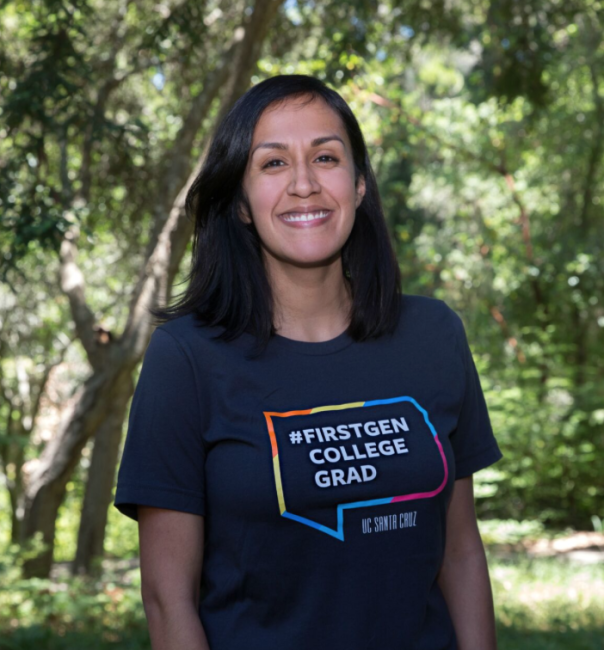You have /5 articles left.
Sign up for a free account or log in.

Rebecca Covarrubias
University of California/Carolyn Lagattuta
Rebecca Covarrubias, an assistant professor of psychology at the University of California, Santa Cruz, didn’t plan on being a professor. She wasn’t even sure she’d attend college. Her Phoenix-area family was tight-knit and supportive, but no one at home had attended college before her, and Covarrubias was mostly focused on making money after high school. Yet she applied to the University of Arizona because her friends were doing it, got a full scholarship based on her academic record and decided to take the opportunity.
Once Covarrubias got to campus, she wasn’t sure how to “do” college, either. She didn’t attend office hours or attempt to connect with professors because she didn’t know that was important.
She learned, of course. But years later, Covarrubias is trying to help make college a little easier for first-generation students as the Santa Cruz campus faculty lead on the University of California’s systemwide First-Gen Faculty campaign.
The initiative, which encourages instructors on campus to identify themselves via T-shirts, buttons and other means as the first in their families to graduate from a four-year institution, starts next week during Santa Cruz's Student Success Week. Fifty-four professors have signed on so far, along with dozens other faculty supporters.
Systemwide, some 800 faculty participants are expected to wear First-Gen Faculty shirts and share their experiences with their students across nine undergraduate campuses during the first week of classes this fall.
Janet Napolitano, system president, said in a statement that by training faculty members to connect with undergraduates “unfamiliar with college culture -- and ensuring that these faculty are highly visible on across UC’s campuses -- UC aims to connect first-generation students with the tools necessary for academic success, to foster a sense of belonging and ownership among this critical student population, and to ensure that UC continues to serve as an engine of economic mobility for our diverse population of undergraduates.”
At Santa Cruz, Covarrubias said, “We’re already having students contact us, thanking us for creating something like that -- for being so transparent. It’s basic but it’s super meaningful and impactful. When students feel less intimidated, the more we can bridge those divides that might exist.”
First-Gen Faculty is mostly a visibility campaign, for now. The idea is that first-generation students can seek out professors with similar experiences as role models or mentors. Faculty members can share advice and alert students to essential campus services. Covarrubias expects that the campaign will evolve into lunch meetings for first-generation students and faculty members, so that they can meet outside the classroom, as well. She’s also helping to organize faculty training on first-generation issues for later this summer. Individual campuses will share best practices with each other, as faculty and staff education on issues central to first-generation students is part of the systemwide initiative.
Another long-term program goal is to move conversations about first-generation students beyond just their deficits.
“These students are not just lacking something, but in so many cases come with additional strengths,” Covarrubias said. Sometimes they’re parents who are managing households themselves, or students who are helping their own parents or caregivers with child care, budgeting, translation and supplemental income, she added.
Reframing the conversation also means recognizing what a successful student looks like. Many professors tend to consider highly confident, talkative, individualistic pupils as engaged, Covarrubias said, but engagement comes in different forms, shaped both by culture and personal experience.
Martin Berger, vice president for academic affairs at Santa Cruz, said that focusing on first-generation students “is one of the most important things that the U.S. should be doing in the 21st century.”
To “unlock the full potential of the country, you need to do more than educate the same elite population generation after generation,” he added. “Doing so limits our ability to innovate and problem solve. The more heterogeneous our approach, the more creative our solutions.”
Some 42 percent of University of California System students are the first in their families to attend a four-year college or university.
Karen Kelsky, an academic career consultant and moderator of the "Professor Is In" blog, said she'd never heard of a program like California's and approved of the concept, in that it "would help first-gen faculty and graduate students as well. In my work I constantly talk to and hear from first-gen Ph.D. students who struggle to understand the unspoken codes of the academy."





